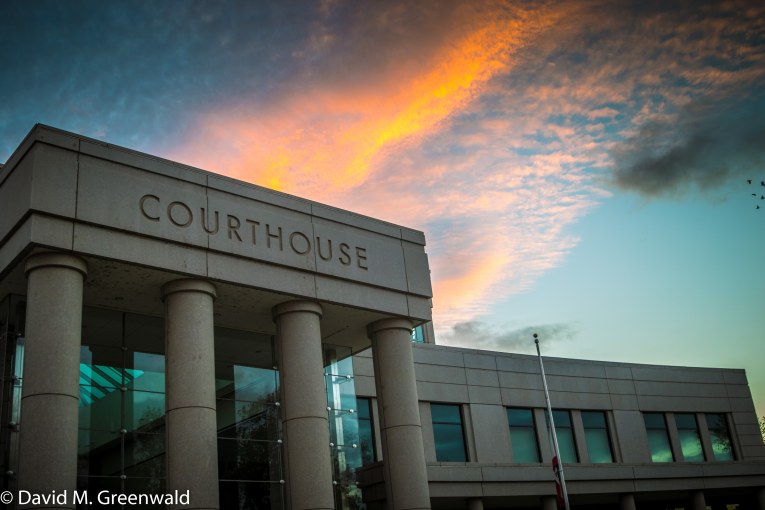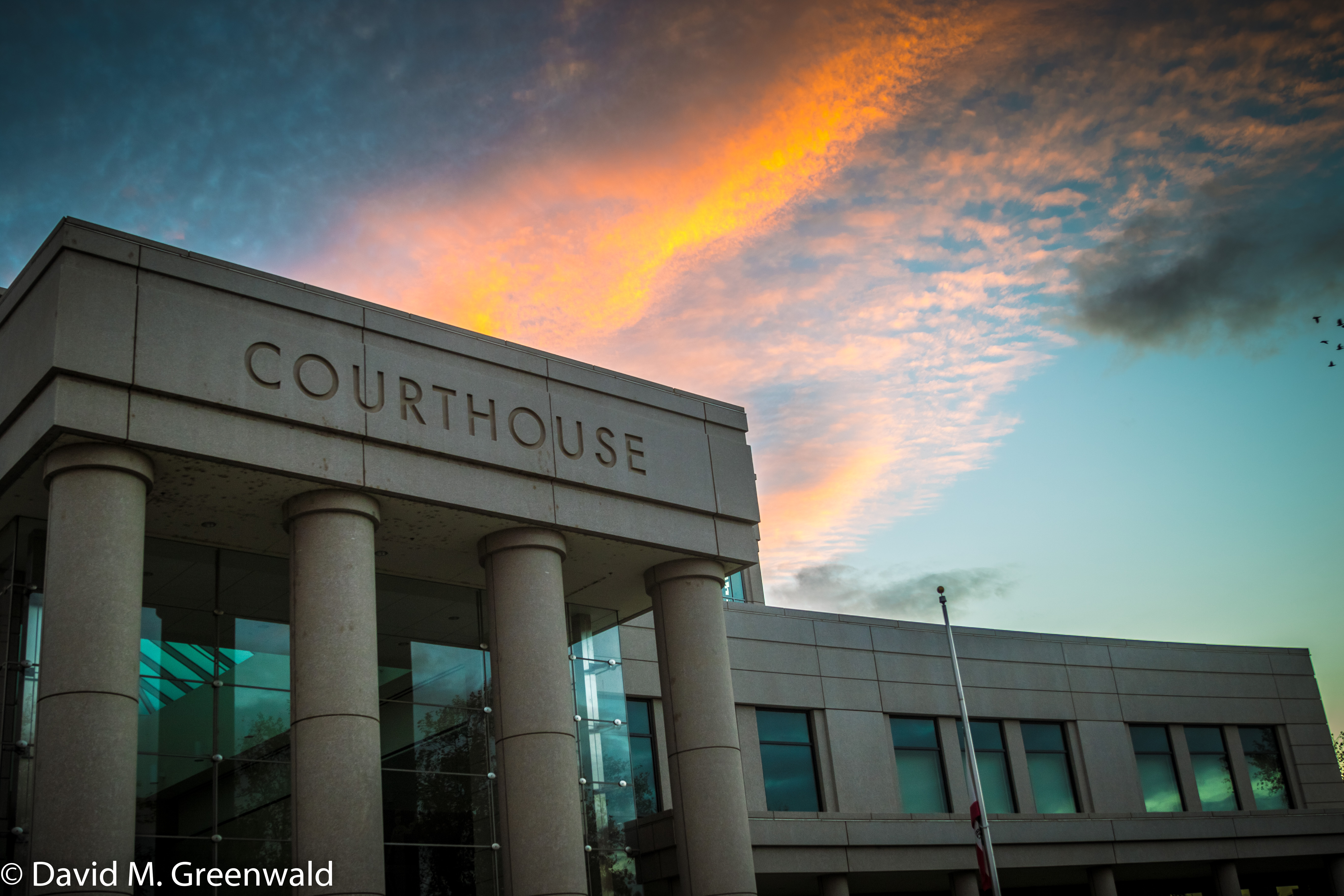
 By Simran Chahal
By Simran Chahal
WOODLAND, CA – A judge here in Yolo County Superior Court this week agreed to turn the remaining in-custody time into community service after hearing about the hardship a family is enduring with another court case.
In August of this year, Ramon Ferrer went to a juvenile hall to visit his son and was turned away. This led him to crash his car and it was later discovered he was driving with a 0.19 percent blood alcohol level.
The charges he is currently facing include “driving under the influence” and “enhancement for excessive blood alcohol.”
Judge Peter Williams started the hearing by asking whether the defendant currently had on his SCRAM (Secure Continuous Remote Alcohol Monitor) device.
The defense attorney, Rodney Beede, replied, “There are three issues facing Mr. Ferrer. First, has he been in compliance with his fine sheet? I would give Ms. Zambor proof that he has. Second, was he doing the 18-month alcohol class? Again, he has full proof that he has done that.”
Beede continued, “The SCRAM device at the time of his sentence was set to go at a particular time. That time expired. He went to probation and probation removed the SCRAM device. So, that was done at the time when the court knew that had been concluded.”
Beede moved on to the third issue as he stated, “His third issue is a jail sentence of 19 days. I can tell the court that I have proof that, during the time he should have gone and surrendered, Mr. Ferrer was a patient in a hospital for COVID-19.
“If the court shows that he does owe time, I would ask the court to seriously consider converting that time to community service,” expressed Beede.
Beede stated, “This is an extremely unusual case. Mr. Ferrer has a son facing a murder charge out of Sacramento. We are now ligating that case.” He said Ferrer has to go to Sacramento for numerous court appearances for that case.
“I think it’s an appropriate case for him to do some community service,” concluded Beede.
Judge Williams asked for Deputy District Attorney Amanda Zambor’s stance on the matter.
Zambor said, “I show proof that he has been participating in the 18-month class and that his fines are being paid up-to-date. I show there was a COVID positive test. My records reflect that he was sentenced to 19 days. Based on the fact of this case and the high blood alcohol level, I think that should be imposed.
“He can do that on sheriff’s work project. He does not have to do it necessarily in the custody of jail, but I do think the 19 days are appropriate as ordered by the court,” continued Zambor.
Zambor stated, “I show that sentence included six months of SCRAM with a three-month review.”
Beede added in, “I can tell we showed up in court and [Ferrer] was sent over to the probation department. When he went over there, they took it off.”
“I going to assume, as an officer of this court, that Mr. Beede what you are representing to the court is true. If that’s the case, we really do not need to talk about SCRAM. What we do need to talk about is this 19 days of custody,” expressed Judge Williams.
Beede explained how hard it has been for the family with this homicide case and “it is the perfect thing for him to do some alternative to this in the Bay Area, where he lives. I think 20 days of community service as supposed to 19 days of jail would benefit everybody.”
Judge Williams stated, “It’s up to the sheriff’s office if you want to check in with them as to alternative sentencing, if he is eligible.”
Beede added, “Well, they won’t order community service and you can. That’s just how that goes.”
“I am opposed to community service, but I’m not opposed to sheriff’s work project,” Zambor stated.
Beede expressed, “I mean there is just so much going on in this family’s life. We work with them regularly. It’s just a lot on this family’s plate” due to the homicide case.
DDA Zambor explained, “He looked agitated and crashed into the curb. He refused all field sobriety tests, refused to provide any chemical sample, and a warrant had to be retrieved for blood. He was a 0.19 percent.”
Beede added, “He did submit to the blood test without resistance. His car was virtually wrecked and he did, thereafter, did not drive.”
After hearing both sides, Judge Williams decided, “I’m okay with community service, but here is the thing…a lot of people just kind of find some 501(c)(3) company. They show up, organize paper for a couple of days, and they get a letter saying they completed of their time. We are not going to do that.”
“The community service that I would like to see is going to have some significance and, perhaps, related to DUI. There is no objection to it being done in the Bay Area,” the judge explained.
The next hearing is scheduled for Dec. 20 for proof of acceptable community service.

